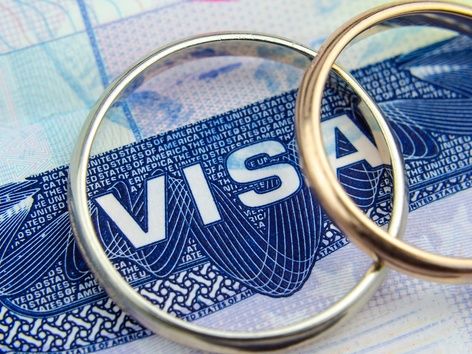Austrian tax system: simple guide for expats
Table of contents
- Which expats have to pay income tax in Austria?
- How is income tax charged in Austria?
- What are the income tax rates in Austria?
- When must an employee file a tax return in Austria?
- Social insurance contributions in Austria
- Taxation of dividends, interest, capital gains
- Additional taxes for private individuals in Austria
- What is the corporate tax rate in Austria?
- Value added tax in Austria
- Double taxation in Austria

Navigating the Austrian tax system can be tricky due to its multi-tiered approach to taxation, which includes taxes at the federal, state, and municipal levels. However, we are here to help you understand. Read this article to find out which expats are required to pay income tax in Austria, how the tax is collected, when an employee must file a tax return, and other important details
Taxes are a key element of the Austrian economy, which plays an important role in financing the social sphere, including the health care system, education and public infrastructure.
Austria's tax system can be difficult for expats to navigate, as it has a multi-tiered tax approach. Contributions are levied at the federal, state and municipal levels.
What taxes must a foreigner pay in Austria? What is the amount of income tax? We have collected all useful information about the taxation system in Austria in our simple tax guide for expats.
Which expats have to pay income tax in Austria?
Under Austrian law, all income earned in Austria is subject to taxation. Non-residents are also required to pay income tax on all money received from Austrian sources.
Expats who live and work in Austria for more than 6 months have unlimited tax liability, that is, they are obliged to pay taxes on income received in any country in the world.
If you work in Austria, but the state is not your main place of residence (for example, you are a citizen of an EU member state who works in Austria and lives in the country of citizenship), then only your Austrian income is taxed in Austria.
Students who work part-time and earn more than the tax-free allowance (€11,693 per year) are also liable to pay income tax.
How is income tax charged in Austria?
In the Austrian tax system, income tax is levied in two different ways:
- Expats who are employees are subject to payroll tax. In this case, the employer withholds payroll tax for the employee before paying the salary.
- Self-employed persons pay income tax. They must submit the declaration independently.
What are the income tax rates in Austria?
The income tax rate ranges from 20 to 55% and depends on the amount of income received:
● Income up to €11,693, Austrian income tax rate - 0%;
● Income from 11,694 to 19,134 euros, the Austrian income tax rate is 20%;
● Income from 19,136 to 32,075 euros, the Austrian income tax rate is 30%;
● Income from 32,076 to 62,080 euros, Austrian income tax rate - 42%;
● Income from 62,081 to 93,120 euros, Austrian income tax rate - 48%;
● Income from EUR 93,121 to EUR 1,000,000, the Austrian income tax rate is 50%;
● Income over EUR 1,000,000, the Austrian income tax rate is 55%.
Austrian law also provides for the "concept of artificial increase of incomes", which ensures fair taxation for all residents of Austria: non-residents are obliged to add a fixed amount of 9,567 euros to their actual income.
In addition, the tax-free basic income for non-residents has been reduced to €2,000 instead of €11,694.
When must an employee file a tax return in Austria?
Expats who are employees of Austrian companies do not have to submit an income declaration. The employer will deduct income tax and social security contributions to the tax office every month. The salary you will receive will be deposited into your bank account after paying the tax.
However, you will need to file a tax return if your personal situation changes. For example, if you have received a promotion, lost your job, or are simply entitled to a tax refund due to your personal situation.
Social insurance contributions in Austria
In addition to income tax, you also pay social security contributions. They are also deducted by the employer before the payment of wages. The total amount of social insurance depends on your monthly earnings. However, social insurance is paid by both the employee and the employer.
The employee deducts 18.12% of social security contributions, and the employer will pay the remaining 21.03%. The maximum monthly social security tax for people with a permanent income is €5,850.
Taxation of dividends, interest, capital gains
Dividends, interest and capital gains from the sale of assets are taxed at a flat rate of 27.5%.
Capital gains from the sale of real estate are taxed at a flat rate of 30%.
Additional taxes for private individuals in Austria
Expats may face additional taxes in Austria that are levied on private individuals:
- Church tax – if you are a member of the Catholic Church in Austria, you may be asked to pay contributions. The church contribution depends on the amount of income and can be paid once or four times a year. Some people are exempt if they have a low income or are still in school.
- Real Estate Transfer Tax – When buying or transferring real estate, a tax known as Real Estate Transfer Tax or Property Transfer Tax is levied on the transaction.
- Vehicle tax – vehicle owners in Austria are required to pay tax depending on the type, size and emissions of their vehicles.
- Dog Owners' Tax - People who own dogs pay a special tax, known as Dog Owners' Tax, which helps cover the costs of dog-related services and infrastructure.
What is the corporate tax rate in Austria?
Austrian limited liability companies (Gesellschaft mit beschränkter Haftung — GmbH) and joint stock companies (Aktiengesellschaften — AG) are subject to corporate income tax.
Currently, the corporate tax rate is 24% of taxable income, regardless of the amount of income. The Austrian government plans to reduce the corporate tax rate to 23% in 2024.
There is no corporate property tax in Austria.
Value added tax in Austria
Value added tax (VAT) is a type of sales tax that applies to the purchase of most goods and services in Austria. The standard rate of VAT is 20%, which is added to the cost of goods or services.
However, there are reduced VAT rates for certain categories of goods and services, for example, a reduced rate of 13% is set for certain goods and services, such as animal and plant products, cultural events and swimming pools.
In addition, a reduced rate of 10% has been approved for food, books, transport, rent and medicine.
Double taxation in Austria
Austria has concluded double taxation agreements with approximately 84 countries and territories around the world. Such an agreement guarantees the expat the avoidance of paying taxes simultaneously in Austria and in the country of citizenship.
If you are an expat, it is important to check the specific terms and conditions of the agreement between Austria and your country to ensure that you are paying the correct amount of taxes.
Before moving to Austria, it is important to thoroughly research the country's taxation system to ensure compliance with Austrian tax laws and to understand any potential financial obligations that may arise. The consultation of a highly qualified lawyer will help to understand all the intricacies of Austrian legislation.
Daria Rogova, Head of Insurance at Visit World
To move, travel or work safely in a new country, you will need health insurance. You can apply for an extended policy on our website here.
Products from Visit World for a comfortable trip:
Checklist for obtaining a visa and necessary documents in Austria;
Legal advice on immigration issues in Austria;
Travel insurance for foreigners in Austria;
Medical insurance all over the world.
Recommended articles
3 min
Travels
Where to go on vacation in January 2024: top 8 best destinations
It's not easy to choose your next travel destination, but we can suggest a better method than pointing at a globe with your eyes closed. It's likely to stop in the middle of the Atlantic or some other not-so-nice place. Find out more about the best places for your January vacation
01 Dec. 2023
More details3 min
Expats
The foreign housing exclusion: a guide for American expats
The foreign expatriate exemption is an unpopular way to save money and limit tax liability for American expats. FEIE does not require any additional paperwork and can significantly increase the affordability of living abroad. Learn more about how you can save money with the Foreign Housing Exclusion program
03 Dec. 2023
More details2 min
Education
Study in France: the ultimate guide for a Bachelor in 2024
France is considered a very international student-friendly destination due to the quality of its education system, as well as its friendly student life, affordable healthcare, and protected housing laws. Find out why France is a great place to study abroad, how the French higher education system works, the procedure for applying to a French university, and other important details
01 Dec. 2023
More details2 min
Expats
How long will it take to bring a spouse to the United States?
U.S. citizens or lawful permanent residents of the United States may petition for certain family members to join them in the United States. This is made possible through the family-based immigration program. Family members can obtain a green card, live and work in the United States legally. Learn more about the types of family immigrant visas and the application process
04 Dec. 2023
More detailsAll materials and articles are owned by VisitWorld.Today and are protected by international intellectual property regulations. When using materials, approval from VisitWorld.Today is required.
